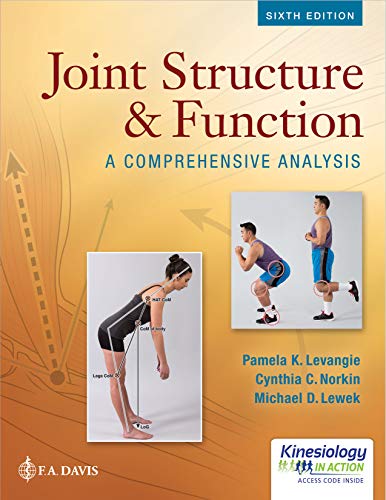Top products from r/PTschool
We found 4 product mentions on r/PTschool. We ranked the 4 resulting products by number of redditors who mentioned them. Here are the top 20.
1. Joint Structure and Function: A Comprehensive Analysis
Sentiment score: 1
Number of reviews: 1
 Show Reddit reviews
Show Reddit reviews2. Cracking the GRE Premium Edition with 6 Practice Tests, 2019: The All-in-One Solution for Your Highest Possible Score (Graduate School Test Preparation)
Sentiment score: 0
Number of reviews: 1
 Show Reddit reviews
Show Reddit reviews3. Learning Resources Skeleton Model, Miniature Model, Easy to Manipulate, 41-Piece Model, Ages 8+
Sentiment score: 1
Number of reviews: 1
Realistically detailed miniature model of the human skeletonGain a deeper understanding of how organs and systems interact by manipulating them yourself41-piece modelFeatures brain, skull, heart, ribcage, lungs, liver, stomach, pancreas, kidneys, intestines, and spine (9.2" x 6.7" x 2.2")Great for a...
 Show Reddit reviews
Show Reddit reviews
A small model won’t have the detailed accuracy that you’re talking about for visualizing individual joints - you’d be better off with a good anatomy app, like the Visible Body Atlas.
That said, there are plenty of small skeleton models for under $20 easily found on Amazon that are still helpful for talking yourself through things while you’re studying. I have this one
If your program starts off with a crash course of anatomy, as many do, some of the structures that will take a lot more time are the brachial plexus and the nerve, blood supply, origin, and insertion of the muscles of the hands and feet. You can pick up an anatomy book (Marieb and Hoehn is very commonly used) and find those.
Other structures that are good to know include the shoulder girdle, the elbow, the knee, and the hip. When dealing with these structures, it's good to consider moment arm physics (important for use), sensory innervation (important for testing for nerve damage), and accessory structures (such as the glenoid labrum, which might get damaged).
More detail is better, since you have about a year to cover it. Anatomy is truly one of the best investments you could make because its the foundation for everything else. I'm in my first year and I can say that it is not possible to thrive in this program without a very solid understanding of anatomy.
If you really wanna go the extra mile, Levangie goes into really excellent detail on joints. Don't read this one cover to cover, but use it as a reference. It's the book I go to when I need to double check things. This book is much more related to functional anatomy than structural anatomy, and as such will include pathologies of specific structures.
Dr. Lorimer Moseley can help get you into pain science. It's part of our curriculum, not sure if it's part of yours, but there are some things in his work that make a LOT of sense. Namely, that we were taught for the longest time that nociception= tissue damage. Yet, pain is very poorly correlated with tissue damage. He explains it very well. I had the privilege of sitting in on one of his presentations and learned a lot, but the ted talk I linked is a good foot in the door.
I'd also get used to reading research papers, appraising their value, and extracting the information in a reasonable amount of time.
Speaking on the GREs. Really just lots of practice will help. Try to take practice tests regularly (every other week or so) while studying. Performance on standardized tests improves the more times you take them. It’s not about being smart, it’s about knowing how to take the tests. If you haven’t already, you’ll want to invest in a GRE prep book. It doesn’t need to be anything crazy, you should find a decent one for ~$30 or less. I used the Princeton Review’s [Cracking the GRE 2018](https://www.amazon.com/dp/152475790X/. They make a new edition every year based on the GRE from the year before ref=cm_sw_r_cp_awdb_t1_KPMsDb1K2RD4K) You’ll want a prep book bc it will guide you through all the content you’ll need to know and provide strategies for doing well.
If you want more practice I spent ~$15 on this book which is essentially a large book of practice problems. I liked this book because it provides you with ~ 30 problems per each math category ( fractions, word problems, algebra, geometry, etc) and I needed a lot of practice for math. It also has a lot of verbal questions and practice tests. It is also part of a series and you can get a new edition every year. Both books I mentioned are great because between them you end up several practice tests to try.
Finally my specific advice for verbal and math would be this:
Verbal: learn the “GRE words”. There are huge lists online and in practice books that lay out 300-400 words that typically appear on the GRE. I literally just learned these and did practice tests and my verbal grade was a 160.
Math: review all the concepts you’re going to be asked (this is where a GRE prep book is useful). None of the concepts are tough, it’s all high school level math, you just have to be quick with problem solving. Practice problems frequently and you’ll have no problem. I worked through the chapters in the books linked above for like 3 weeks and easily got a 157 on my math.
TL;DR- invents in some practice books/ GRE guide books, try to regularly attempt practice GRE tests, study GRE vocab lists for verbal, try some practice problems for math
Buy this book!
https://www.amazon.com/gp/aw/d/B0792P2719/ref=tmm_kin_title_0?ie=UTF8&qid=&sr=
It seriously helped me a lot. At my first interview I got rejected and then I read this book and at my next interview I was accepted right after the interview on the spot.